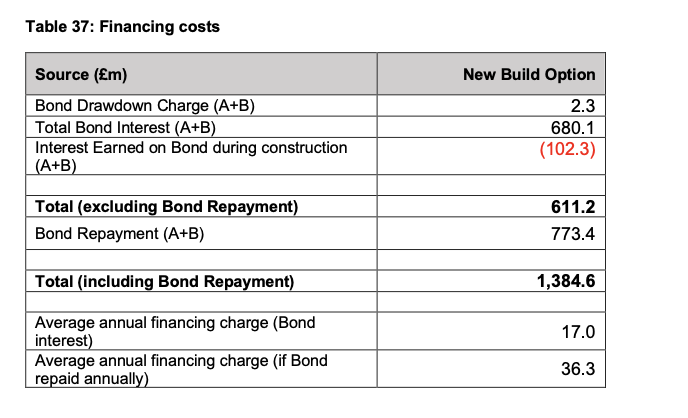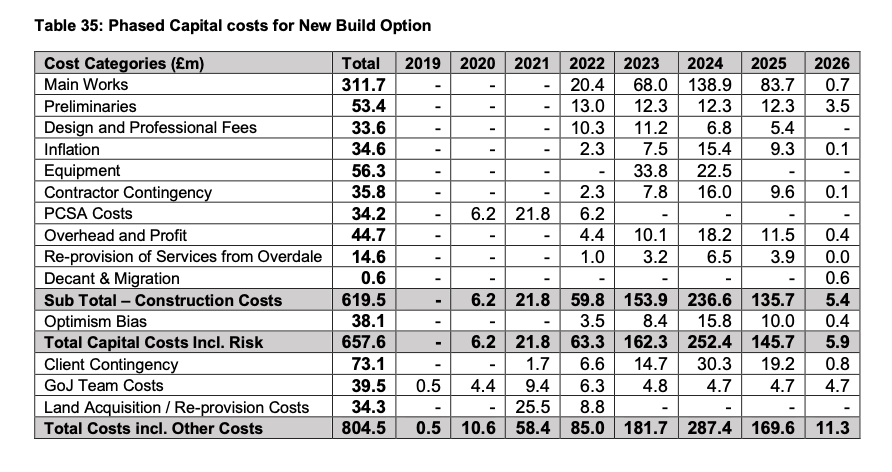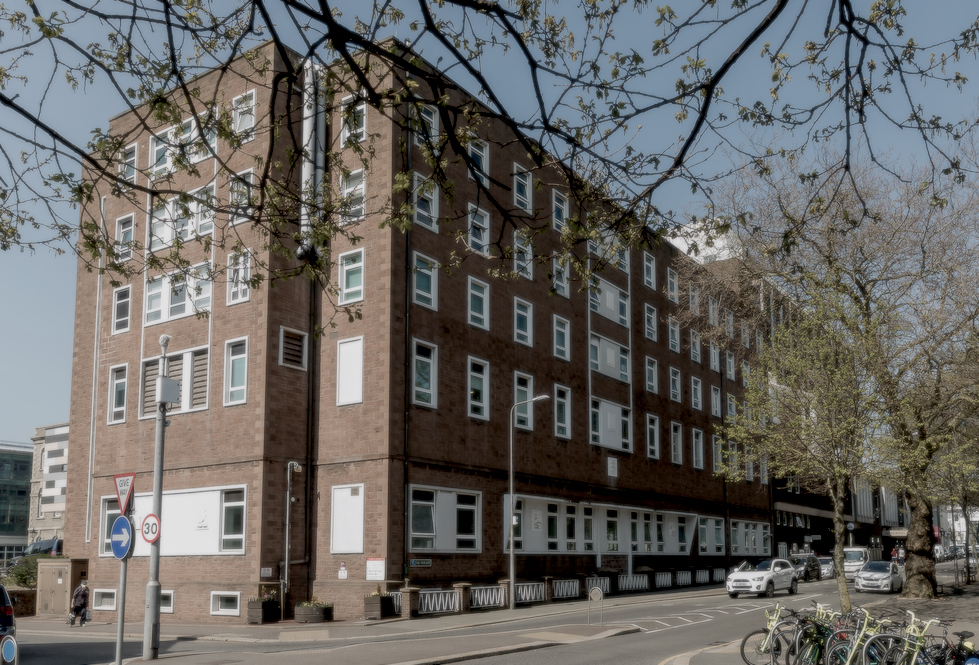


The Government wants to fund the £800m new hospital at Overdale through two bonds of £400m each - costing the island £1.4bn by the time they are paid off in 40 years.
This borrowing, it says, would be paid back over 30 and 40-year period, with each bond carrying an annual charge of 2.5%.
The preferred method for financing the new build is included in a newly-published document called the 'Outline Business Case' (OBC), which explains funding requirements in depth.
However, the document doesn't propose exactly how the bonds would be paid back, noting that the "payment of the annual bond coupon is a new cost to Government and a funding source will need to be identified."
The previous hospital project to refurbish the current site, which was thrown out by States Members two years ago, was estimated to cost £466m and was due to be financed through a £400m bond, 'topped up' by dipping into the island's so-called Rainy Day Fund.

Pictured: Borrowing £800m is estimated to cost the island £1.4bn by the time its paid off.
Before Ministers' preferred funding option for the new hospital at Overdale can be implemented, it will have to approved by the States Assembly in a debate scheduled for October, with the above figures used as "estimated bond charges and funding requirement."
If there is any delay, the Government says in the OBC that it may dip into its £500m covid loan.
The document also provides a clearer breakdown of the £804m spend on building the hospital, whose main works should cost £312m.
By the end of 2026, the Government will have racked up a Design and Professional Fees bill of around £34m and the staff costs for the Our Hospital Project team will stand at nearly £40m.

Pictured: A breakdown of estimated costs up until 2026.
"Preliminaries" - the element of the costs related to providing general plant, site staff, facilities, site-based services and other items not included in the main works costs - are estimated to cost £53.4m, factoring in the "unique challenges of delivery in Jersey".
However, the OBC document says these are still being worked out and could be subject to change.
In addition, £34.3m will have been spent on purchasing sites and properties, an estimate that includes a number that are "still being negotiated" and the potential costs of compulsory purchase.
Previously, the Government said it was expecting to spend around £16m on properties, and latest available records show that more than £12m has been spent so far, primarily on the acquisitions of residential properties, with two more homes currently being eyed up.
What the budget does not include is the operational cost of running a new shuttle bus service to the new hospital, as well as facilities management, which will be laid out in a separate plan under development.
While the project cost may seem high, the OBC predicts that the cost of simply refurbishing existing health facilities over the next 40 to 50 years would be £140m higher at a total of £940m - estimates some States Members told Express they were sceptical about.
The main works - which in this scenario would be spread across the General Hospital, Five Oaks, Maison Le Pape, 14 Gloucester Street, Le Bas Health Centre and Overdale - are listed as costing £406m.

Pictured: The Government estimates that refurbishing the current hospital, and complementary health facilities, would cost £940m.
According to the OBC, building a brand new, all-inclusive health centre at Overdale would create opportunities to save - or even earn - more money by, for example:
not having to work or maintain some existing sites because of the new building (maintaining the General Hospital is currently set to cost £20m over the next four years);
the option to make money off of buildings that become vacant as a result of the new hospital;
productivity savings from "more efficient flow of services, technological solutions and staffing resource";
more money from private patients due to an "expanded" private patient unit (previously predicted to bring in up to £3m a year);
derogating from building standards where doing so is acceptable clinically and functionally;
and moving some existing furniture, fittings and equipments into the new hospital.
These savings are not quantified in the document, however.
Deputy Chief Minister Senator Lyndon Farnham, who has political responsibility for the project, said: “The business case has clearly demonstrated that our new hospital can be achieved within the budgeted cost and in time to be fully operational by 2026.
“At the same time, it will provide a health facility that is greatly improved on the previous iterations of the project. The main hospital building will consist of four hospitals in one: general, acute, ambulatory, and maternity and children’s, together with a knowledge and training centre and mental health facility. It will be supported by a modern and highly efficient energy centre, and entirely set within landscaped gardens and parklands, in an elevated and peaceful location.”
CLICK HERE to read the Outline Business Case in full.
Follow Express for more analysis on the new hospital project...
Comments
Comments on this story express the views of the commentator only, not Bailiwick Publishing. We are unable to guarantee the accuracy of any of those comments.